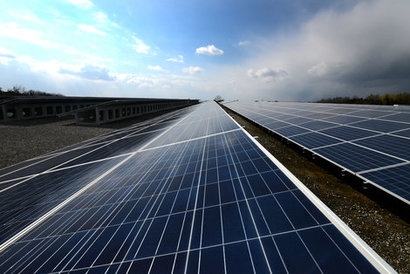
The Commerce Department initiated its investigation in April this year, following the filing of a petition by Auxin Solar, Inc. The case revolves around the question of whether or not solar cells and modules completed in Cambodia, Malaysia, Thailand, or Vietnam using parts and components from China are circumventing the Antidumping and Countervailing Duties (AD/CVD) orders on solar cells and modules from China.
The investigation could impose new large duties on imports of panels from the four SE Asia countries. It has stimulated a debate and presented potential challenges regarding manufacturing costs and profitability amid existing uncertainty following on from COVID and supply chain disruptions.
A final determination is expected in May 2023.
“Today’s announcement from the Department of Commerce is a step backward for the United States” said ACP Interim CEO and Chief Advocacy Officer JC Sandberg. “This decision upends a decade of precedent that Commerce itself established, undercutting any sense of business certainty that American companies rely on to continue investing in America’s clean energy future and impacting our ability to reduce our dependence on foreign energy sources. American solar companies are making critical 2024 procurement decisions now and today’s decision casts greater uncertainty about the future of the solar industry in the US that could lead to higher electricity bills. It could also undermine the impact of the Inflation Reduction Act, harming domestic manufacturing and endangering good-paying jobs across the country."
Gregory Wetstone, President and CEO of the American Council on Renewable Energy (ACORE) added that the preliminary decision on solar tariffs from the Department of Commerce creates new challenges that threaten to undermine Biden administration efforts to address climate change and accelerate the clean energy transition.
"The US solar industry was upended earlier this year when this tariff inquiry was launched, prompting more than 100 members of Congress to speak out in opposition and necessitating direct action by the White House to mitigate impacts" said Mr Wetstone. "With today’s decision, the Commerce Department appears to be doubling down on constricting solar availability, and imposing massive new red tape with certification requirements that could further chill the industry and thwart the administration's clean energy objectives. This is a major step backward at a time when there is finally hope the US can get on the path toward a climate solution. The good news is that we look forward to the development of an enhanced domestic solar manufacturing base over the next few years, spurred in part by the incentives in the Inflation Reduction Act. But that will not happen overnight. Like most sectors of the American economy, the solar industry has a global supply chain and a business model that relies on stable policies and predictable pricing. Today’s decision will limit our ability to fortify our supply chain and reflects the dramatic shift from ‘free trade’ policies to protectionism in both parties. American consumers, and the effort to protect our climate, are unfortunately caught in the middle.”
For additional information:

